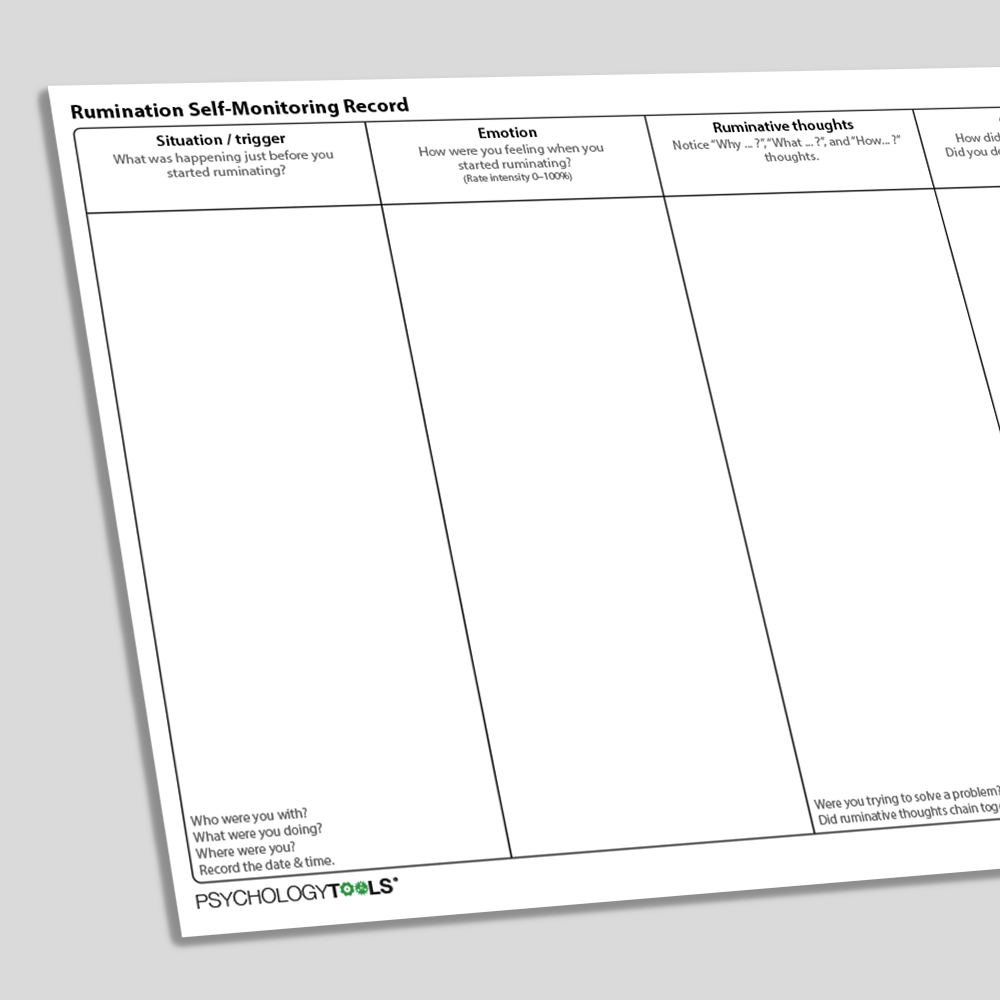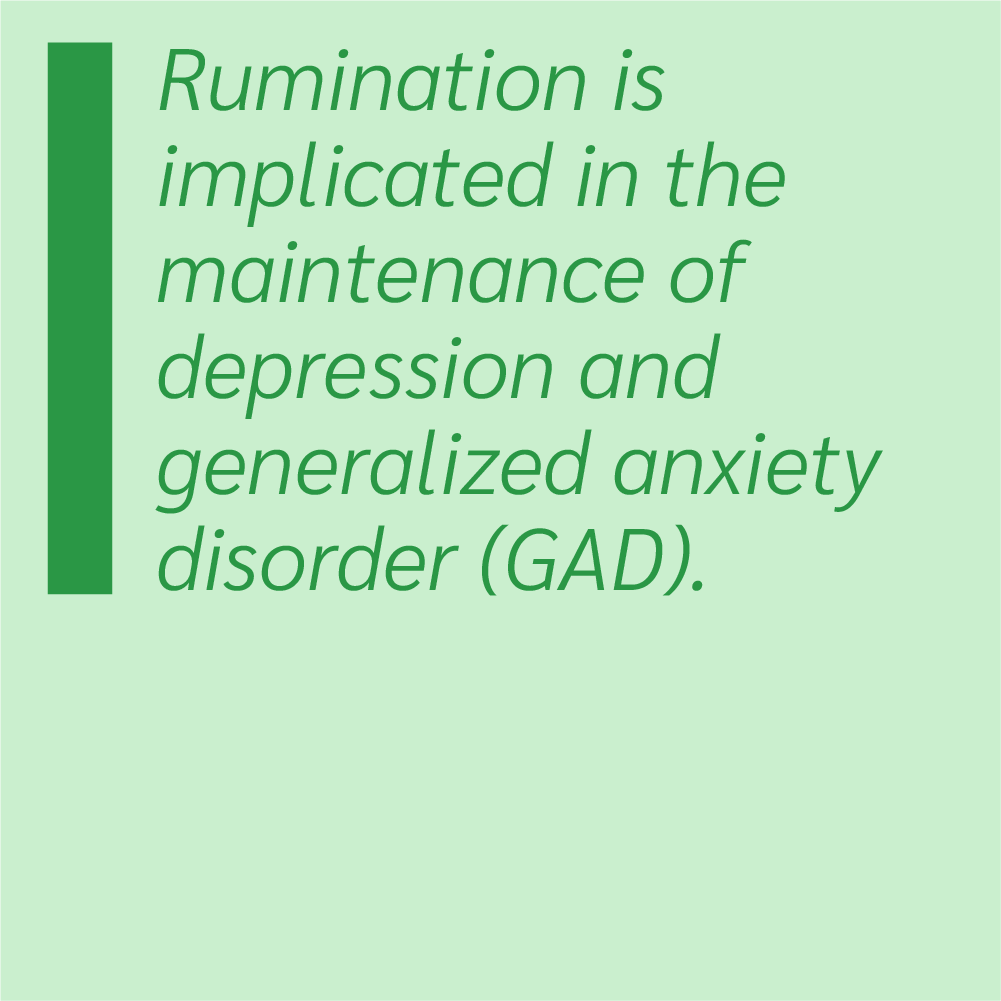Rumination Self-Monitoring Record (Archived)
NOTE: An improved version of this resource is available here: Rumination Self-Monitoring Record. Older versions of a resource may be archived in the event that they are available in multiple languages, or where data indicates that the resource continues to be frequently used by clinicians.
Rumination-Focused CBT (RF-CBT) takes a functional-analytic approach to rumination and aims to help depressed clients to identify the contexts in which rumination occurs, the consequences of rumination, and to develop alternative options to rumination. The Rumination Self-Monitoring Record follows the RFCBT approach, helping clients to understand the context and consequences of their rumination.
Download or send
Tags
Languages this resource is available in
Problems this resource might be used to address
Techniques associated with this resource
Mechanisms associated with this resource
Introduction & Theoretical Background
Depressive rumination is defined as “behaviour and thoughts that focus one’s attention on one’s depressive symptoms and on the implications of these systems” (Nolen-Hoeksema, 1991). It typically involves repeated thinking about the self, past events, and ongoing concerns. Ruminative thinking often analyses the causes and consequences of negative events, problems & moods. “Why …?” Questions feature prominently, and thoughts often chain together leading to spiralling feelings. Rumination is a transdiagnostic mechanism which is implicated in the maintenance of depression and generalised anxiety disorder (GAD).
Some authors have argued that traditional CBT thought challenging can be unhelpful in depressive rumination since stopping one thought does not necessarily stop the flow of ruminative thoughts, one exception may be when thought challenging catches the start of a chain of rumination (Watkins, 2010). Rumination-focused CBT (RFCBT) conceptualizes rumination as an escape and avoidance behaviour that has been negatively reinforced or has positive associations (Watkins,
Therapist Guidance
Clients should be instructed to record specific instances in which they ruminated.
- In the first column (Situation / trigger) clients should be instructed to record what they were doing just before they started to ruminate. Training clients to record specific details (such as who they were with, where they were, and what had just happened) is often helpful when later elaborating a memory for an event, or simply in understanding the reasons for subsequent thoughts and responses
- In the second column (Emotion) clients should be instructed to record their emotional reactions in that moment (which can typically be described using single words, e.g. angry, annoyed, frustrated) and associated body sensations (e.g. tightness in my stomach). Clients should be encouraged to rate the intensity of these sensations on 0–100% scale. The internal emotional landscape forms the context for the rumination as much as the external landscape (situations / triggers).
- In
References And Further Reading
- Nolen-Hoeksema, S. (1991). Responses to Depression and Their Effects on the Duration of Depressive Episodes. Journal of Abnormal Psychology, 100, 569-582.
- Watkins, E. (2010). Cognitive-behaviour therapy for depressive rumination. Unpublished manuscript, University of Exeter, Exeter.



